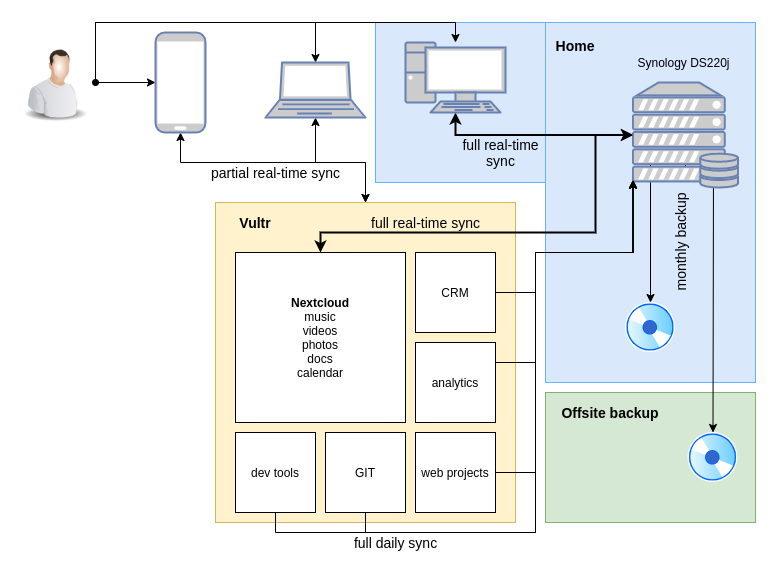Gergely Orosz: Because there was a fast-forward for a while, where the whole world was locked down, and digital became a lot more important… But I think a good example that I think of, and I have a bit of insight into, is this company Hopin. Hopin is this video events company; so they do digital events. And they were founded in 2019, so a year before the pandemic. They raised I think like a few million dollars of funding, and then the pandemic started, and right as the pandemic started, they raised a bigger funding, to scale the scene, because it seemed okay; like, digital events will now be a thing, because there’s a lockdown… And they saw huge demand in both 2020 and 2021 for their solution.
I actually organized – you could organize online conferences with their tool. And I actually helped organize a digital conference, I think it was the fall of 2020, or something like that… Because it was lockdown, I didn’t have anything to do, and I was like “Let me do this.” And we looked at vendors, and we chose Hopin in the end; I think we paid like a couple thousand for their license, or whatnot… They had this licensing. And we ran the event, and it was a success, and people liked it… But what I noticed is – and then the company kept raising more money, and at some point they were valued at 7.8 billion, or something; I think that was the peak, as I recall. And this was like two years into the founding of the company.
And then what happened is – well, first of all, just from my personal perspective… I’m not gonna represent all their users, but I just really got burned of digital events. Like, I went to a couple of these digital-only conferences, and after a while I just started hating it. I was doing Zooms all day, every day… So I just didn’t want to go there. And as soon as the world started to open up, I’ve just been to my first proper conference. I love the normal conference format, and I would not – okay, maybe I would jump on to watch a video online, but I don’t think it’s really important.
And then with this company, Hopin, they saw their growth just first stall… And the thing that might save the company is they actually bought a bunch of different companies. They bought StreamYard, which is a streaming company, and they bought a few other video streaming companies… And what I’ve heard from people who work there is their events revenue, their flagship thing is just going down, because it’s really hard to sell right now. People just don’t need a digital-only solution anymore.
And my point is, they’re a bit of an outlier, but they’re a typical pandemic company, where it seemed the whole world would change, a lot of money went into there, and if the whole world would have changed and we would now be doing a digital-only conference, it would make sense, because they would probably be market leaders… But the world has gone back, and I think we’re seeing this backswing a lot of times.
I’ve seen a chart about e commerce adoption, where it spiked, and it did look like it’s jumping up ahead by 5 years or 10 years, but then it came back, and now we’re just on that normal growth. So this growth is back to where it was before, which means that everyone who expected that in 2022 or 2023 you’re gonna have similar growth as 2021 just over-hired, and now they’re all correcting, because – well, because also, don’t forget, there’s a second part here, which is not just the COVID is shrinking, but the interest rates are up, which means it’s a lot more expensive to borrow any sort of money, which a lot of tech companies had been doing… So they can’t borrow money, so they need to rein in their costs if they’re not profitable.
[14:29] And those are just a few things. We’re not going to be able to figure out exactly what’s happening, but the pandemic was – it’s just so strange, because for the rest of the world… Take an industry like hotels, or hospitality, right? You’re kind of working in a hotel, or managing a hotel… The pandemic was terrible, right? You got shut down, you had no revenue, you were trying to survive. For tech, it was the opposite. It was amazing, and it was great that time, because we had more jobs, more money… There were people quitting, because they – people had a lot of options, and it was a great time to be in tech. Now it’s the opposite. If you work in hospitality, things are great. More and more people are traveling; it’s going up. You’re gonna get more – hopefully, you’re gonna be earning more, getting more tips, whatnot. And now in tech it’s the opposite. It’s just not great if you’re in tech.
I mean, it’s not great to see the news… This is impacting people. There’s a question of how many people are really impacted in the sense of not just being laid off, but not finding a job. And I think that’s where we’re gonna see a long tail effect, or like a double down. People who are software engineers, experienced engineers who are being laid off at well-known companies - I think it’s hard. I don’t want to trivialize this. But they will have options to work somewhere. It might not be as great though as their current company in terms of maybe culture, or compensation, or both. But they will have options.
The problem is that all of this will trickle down. We’re now seeing thousands of really competent software engineers being on the market, so startups are really happy, these banks are really happy… I have some friends at Uber, former friends, who… I used to work – one of my first jobs was at JP Morgan, in London, an investment bank… And at the time, I really liked that job, because it was one of my early jobs, and it was a great place to be… But when I got my next job at Skype, I just realized JPMorgan was totally not a tech company. And I was so happy to finally work at a tech company, and I said i would never go back to a place like JPMorgan.
Uber also had a really good engineering culture, in the sense that it was one of the best places I worked at… And now I have some friends and colleagues who work at JPMorgan; and I talk with them and I say, “Dude, why did you kind of take a step down?” And he told me “So here’s the thing… Two things. First of all, it’s just really, really stable. They have super-profits. I get all my compensation in cash. None of that stock going up and down, and mostly down. Second of all, they actually want to create a tech culture, and finally, they can hire the people into this; they have a lot of these greenfield projects where it’s full of – they have ex-Facebook, ex-Google, ex-whatever people, and it’s actually pretty good.”
So I think the world is changing a little bit, and people are realizing that pre-IPO companies, or even any form of companies that give you stock - it has a massive risk. So traditional wisdom the past 10 years was if you are a publicly-traded company, you get like half of your compensation, if you’re a senior engineer or staff engineer, half of your composition in base salary, and the other half in equity, and that’s great, because equity will always go up. Well, equity for some companies has collapsed by let’s say 70% or 80%. And I talked with people who on paper they were earning $500,000 in Silicon Valley, and now it just went down to like 350k or 300k. And they’re saying “What should I do? Should I interview somewhere else? But now there’s fewer jobs… Or should I just stick it out?” There’s no good answer. But the point is, now you’re really seeing those banks - one of the reasons that people are going to these banks is they might pay, let’s say, for a similar skill, maybe they pay 350k or 400k, or less, or more; it doesn’t really matter. But it’s fixed. It just doesn’t move. And the people who I know who have families, and they just want stability, they’re like “You know what - it’s a good trade-off. It’s a rocky time, I’m gonna sit it out here.”
[18:09] And you know what - it’s kind of nice, because now those companies can hire people who would have never considered working there. So we might see the industry transform a little bit from the unsexy companies becoming a bit more sexy, and the sexy companies… Let’s give an example - Coinbase. Coinbase was such a hot company to go on and work for a year ago. They’re doing crypto, and if you’re into that - I’m not that much into it, but again, they’re doing something really interesting in that space, trying to give new financial instruments… And they were paying really, really good. Like, they were giving ridiculous stock packages to people who were accepting it. And now the company is not doing that great, the space is kind of – it’s unclear what the future will be, and their stock is not doing that great… So that company, or some of these hot startups have just gone from being one of the best places to work at, to “Oh, it’s a risky place.” We’ll see if they’ll be able to grow. And I’m not just talking about Coinbase, I’m just talking about the hot companies in 2021.











